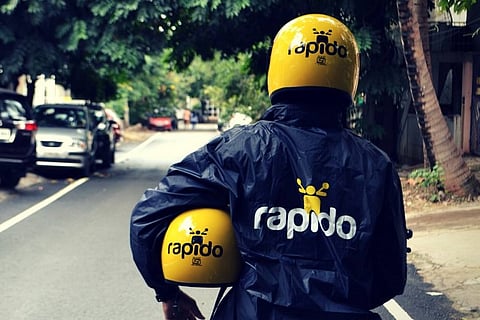

The Madras High Court last Thursday banned Rapido which provides bike-sharing services. The order stated that the ban shall be in place in Tamil Nadu till the state government formulates necessary regulations in this regard.
According to the order passed by Justice G Jayachandran, the court has refused to allow Google Inc and Apple India Private Limited reinstate Rapido bike taxi app on its app stores. The court has also directed Rapido to not offer its services in Tamil Nadu till the state government puts appropriate regulations in place regarding bike taxis.
The case
Rapido had petitioned the Madras High Court after the Chennai Commissioner of Police ordered Google and Apple to take down the bike sharing app from their mobile application services. This since the app violated provisions of law in Tamil Nadu.
While Rapido contented that it was merely carrying out an innovative business model and lack of regulations cannot be a reason to punish its business, the state government maintained that two-wheelers cannot operate as commercial vehicles and that it was in the process of framing rules regarding the operation of aggregators of call taxi, bike taxi and carpooling.
Rapido is an app that connects commuters who are seeking a ride to ones that have an empty seat on their two wheelers. It essentially connects commuters with riders going in the same direction for a fee. Anybody can register as a Rapido captain if they have a two-wheeler and a valid driving license. Once registered, the company claims to verify the documents and adds them to its database of captains, who will then be allotted rides based on the route they take.
This was flagged by the Chennai police as illegal, since two-wheelers are not permitted to operate as commercial vehicles in Tamil Nadu.
What the laws in Tamil Nadu say
The Motor Vehicles Act 1988 governs all the aspects of road transport vehicles in India. Every state is allowed to frame their own rules to monitor and regulate the motor vehicles in their state. Accordingly, Tamil Nadu also has its own set of rules governing motor vehicles over and above the Motor Vehicles Act at the national level.
Motor vehicles are broadly classified as transport and non-transport vehicles. Loosely put, transport vehicles are those which engage in commercial operations (buses, trucks, goods carriages etc) and are generally identified with a yellow number plate. Non-transport vehicles are those that ply for non-commercial purposes, or for private purposes. These are generally identified with registration plates in colours other than yellow. While commercial vehicles are subject to rules of GST and other regulations (insurance, drivers licensing, permits etc) to operate, private vehicles are exempt from taxation rules and specific licensing.
As per these rules, two-wheelers in Tamil Nadu (motor cycles) are classified only as non-transport vehicles. This means that bikes and scooters in Tamil Nadu cannot operate as a commercial vehicle like a cab or auto.
While Ola and Uber also operate taxi services on a similar mechanism, the main bone of contention seems to be that cars are allowed to run as ‘transport vehicles’ whereas two-wheelers are not allowed to do so, yet.
‘Services should be legally compliant’
As of Tuesday, around five days since the Madras High Court banned bike-sharing services, Chennai residents were still able to download the app from Google Playstore, while Apple has taken it down. Rides were also available on the app for the users, claims Aruna Natarajan, a Chennai-based journalist.
Aruna had used a Rapido ride a few days ago, before the court banned it. “Because I was in a mad hurry to get somewhere,” she says adding that cabs and autos would have taken a longer time to reach the spot. Users also say that Rapido allowed them to take a break from riding their own vehicle through Chennai’s traffic.
Bala Pratipraj, a Chennai-based marketing employee says that bike-taxis are much cheaper than cabs or autos and can easily navigate through narrow gaps on the traffic-laden road.
Though she was impressed with the prompt service of Rapido, Aruna agrees that such innovative ideas must work within the framework of the law.
“There's always been the issue world over with rideshare services where the tech/business model has been a step ahead of the law,” she points out. She, however, puts the onus of bringing in the required regulations on the companies.
“I do think these services should be legally compliant. So, they must push for a change in the law that would allow them to operate within that framework rather than outside it,” she explains.
But it’s not just Tamil Nadu, Rapido is banned in Bengaluru by the state transport regulatory authorities for operating beyond the existing legal framework. However, Rapido continues to operate in Bengaluru city as on today.
Bike-taxi services in Hyderabad have also come under severe criticism. In April, a software engineer died after he met with an accident while riding pillion on a bike-sharing service. While the bike-taxi service providers are supposed to carry an ISI-certified helmet for the pillion rider and a first aid kit, many users have confirmed that the companies seldom follow this.